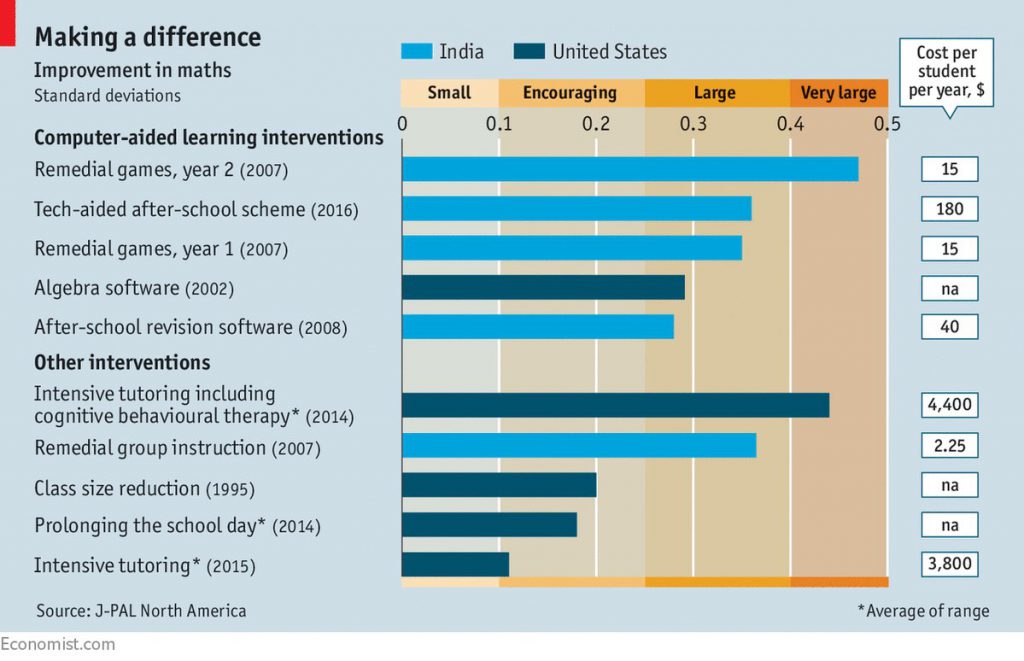Guest post by Jeff Mosenkis of Innovations for Poverty Action. The summer ape blockbuster you’re been waiting for is here. In Science economists Seema Jayachandran, and Joost de Laat team up with satellite researchers Eric Lambin, Charlotte Stanton, Robin Audy, and Nancy Thomas (with some help from IPA and Uganda’s Chimpanzee Sanctuary and Wildlife Conservation Trust). They ran the first RCT showing that just paying farmers in Uganda a little bit not to cut down forest on their land where endangered chimps live cut deforestation in half. But the real policy importance comes from their cost-effectiveness analysis. Each village kept about 3000 tons of CO2 out of the atmosphere during the 2-year study, and each of those tons cost only about 46 cents. This is something like 10-50 times
Topics:
Jeff Mosenkis (IPA) considers the following as important: carbon, child development, co2, cost analysis, cost-effectiveness analysis, development, Economics, Employment, environment, International Rescue Committee, IRC, Labor Market, links, miscellany, news, podcast, podcasts, psychology, Research, science
This could be interesting, too:
Lars Pålsson Syll writes Schuldenbremse bye bye
Lars Pålsson Syll writes What’s wrong with economics — a primer
Lars Pålsson Syll writes Krigskeynesianismens återkomst
Lars Pålsson Syll writes Finding Eigenvalues and Eigenvectors (student stuff)
Guest post by Jeff Mosenkis of Innovations for Poverty Action.

- The summer ape blockbuster you’re been waiting for is here. In Science economists Seema Jayachandran, and Joost de Laat team up with satellite researchers Eric Lambin, Charlotte Stanton, Robin Audy, and Nancy Thomas (with some help from IPA and Uganda’s Chimpanzee Sanctuary and Wildlife Conservation Trust). They ran the first RCT showing that just paying farmers in Uganda a little bit not to cut down forest on their land where endangered chimps live cut deforestation in half.
- But the real policy importance comes from their cost-effectiveness analysis. Each village kept about 3000 tons of CO2 out of the atmosphere during the 2-year study, and each of those tons cost only about 46 cents. This is something like 10-50 times cheaper than achieving similar results through energy technology subsidies in the U.S.
- More in the New York Times or Atlantic, and this thoughtful thread on the topic from an expert (h/t David Evans). You can call in and ask Seema about it yourself on Public Radio’s Science Friday today sometime between 2-2:30 Eastern (stream from wnyc.org)
- Some of the experts quoted in the stories above note that what really makes the study powerful is that they didn’t stop at the cutting deforestation in half part, but also ran the numbers to find out how cheap it was. Turns out this is pretty rare, but really important to people who need to actually implement policies. In education, for example, a cognitive behavioral therapy intervention had about the same effect as remedial games, but one cost $15 per student, the other cost $4,400 per student (albeit in different countries). Most research papers leave the price tag out, or as Caitlin Tulloch puts it on the Life of The Mind podcast:
“It is perpetually amusing to me that economists are uniquely bad at talking about how much things cost.“
- In that podcast she talks eloquently and compellingly about leading the group that is systematically doing cost-effective analysis across all of the International Rescue Committee’s programs. Particularly interesting about doing it for such a large org is with lots of work in different locations, she begins to see what looks like a mystery for individual RCTs – that programs work differently and cost different amounts in different places. She suggests that when you begin to aggregate across individual evaluations, you start to see patterns that you don’t see in any one individual study and realize why seemingly conflicting individual results are really expressions of a larger systematic pattern.
- Kids in Cameroon do muuuuch better than German kids on the marshmallow test. Researchers speculate b/c parenting styles of the Nso ethnic group there emphasize emotional self-control and deference to parents.
- Interesting thread from a labor economist on what job creation policies might look like in the U.S. if they focused on created jobs rather than training workers (h/t Sally Hudson)
The best tweet so far on the deforestation study:
Stopping deforestation might be easier than we thought https://t.co/JxsfJBrIPQ pic.twitter.com/pyRJBDjHqf
— Popular Science (@PopSci) July 21, 2017

